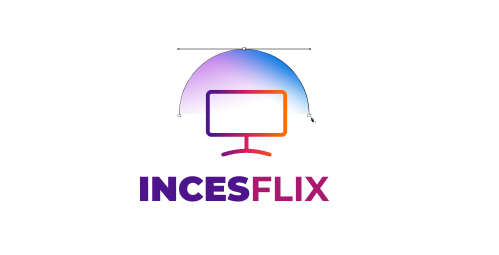Some of the most popular plots that people enjoy while reading manhwa are those that are capable of eliciting painful feelings, and one of the most popular death–ticks is a tragic death. However, what do we do when the author of a manhwa wants to subvert this trope? There are numerous articles available for readers which depict the process of revising a tragic ending in manhwa but there is only a limited set of resources which give actual tips and suggestions for ‘manhwa creators who are also interested in changing the tragic ending of their creation.
What We Know About a Tragic Ending
Why Tragic Endings Matter
High deaths can stay in readers’ memory for quite a long time. For most of the subscribers, they tend to elicit wide rage of emotions and encourage deep philosophical thinking. In manhwa, a tragic plot can be expressed in the fact that the hero loses everything, a family member dies, or a conflict remains open. These can also help the author to create the deep and impressive emotion behind the story, which will be felt by the reader even after last episode of this series.
The Use of Irony in the Presentation
As much as a tragic ending can be effective, it will also run the danger of isolating readers who want more positive endings. One has to be careful not to have the audience come out of the show feeling empty or depressed in some way. Rewriting the tragic ending of a story, in some ways, can point to these concerns as well as give a better ending to the characters’ experience.
Why Reactivate a Tragic Ending?”
Reader Feedback
The most frequent cause of rewriting of a tragic ending is probably the readers’ response. A reader may feel let down or angry about a conclusion and this may compel the author to change her mind about the ending. I agree with this idea, and using this kind of input can be fruitful in improving a story and making it more complex and therefore more interesting.
Creative Evolution
However, over time one develops in their creator hood and may develop a different perception on the same given work. What is more, a tragedy obtained once as the perfect ending to the story may no longer fit the creator anymore or may not reflect the best skills of the artist. It can signify that the creator has evolved and include a completely new message to the plot or even a darker one.
Expanding the Story
It also prevents the author from telling other stories because it depicts only the ending of the characters’ lives. When a conclusion is redone, it becomes possible for the subsequent creators to tell a continuation or come up with a different storyline all together. This can extend the manhwa universe and or give readers a more filling experience when reading manhwa.
How to Retell a Tragedy
Analyzing the Original Ending
To rewrite writing, it’s a prerequisite step to review the ending materials of the writing very comprehensively. Every tragedy has elements that define it in that manner; therefore, I present the following elements of the tragedy: In what way did it fit into the plot and in the characters’ growth? If these aspects can be found, they might help come up with another ending that would not harm the story’s essence that was sought to be changed.
Revisiting Character Arcs
Character arcs make a lot of difference when it comes to determining the success of an ending. Think dispassionately about how the idea of the unhappy ending affected the strands of character transformation. When re-writing the end, it needs to make thematic sense and fit the characters better, giving the characters proper send-off.
Exploring Alternative Outcomes
When changing the end of a tragedy, branched out by other scenarios carrying sentiments without necessarily remaining hopeless. Consider how it is possible for the central notion of a given story to shift a little to make the story end on a brighter note or at least with a less pessimistic one.
Useful Advice on Changing the Tragedy of the Story
Engage with Your Audience
Since you have your own opinion, do not hesitate to involve your readers and find out how they felt about the original ending. This can be done by sending an online questionnaire, using an SNS or visiting a fan forum. Collecting feedback can help you know the essence of your fans and help when choosing the kind of ending that would suit the fans more.
Maintain Narrative Consistency
Make sure that the new ending that is developed is compatible to the rest of the story. It should not only tie up the plot and characters’ development but also stay in the tone and didactic purpose of the manhwa. Any alterations that are made should appear to have happened naturally when executed in acting.
Test Your New Ending
It would be advised, though, to do an informal survey or solicit the help of a few people to be beta readers of the altered ending. This feedback can help in finding out if there are any arising issues and the legitimacy of the new conclusion. In their responses, make a corresponding change on the way you are doing it.
Reduced or more palatable versions
The Manga entitled “Fullmetal Alchemist” by Hiromu Arakawa.
The perusing of Hiromu Arakawa’s ‘Fullmetal Alchemist’ also gives a perfect example of a potent and melancholve storyline in the category of manhwa. In the telling of the complex and moving ending to the original manga, the creator has also offered some changes that grant a more optimistic ending for the characters. This has shown that a change in the ending of the story is useful since it makes the story flow better.
“Naruto” by Masashi Kishimoto
Another example is Masashi Kishimoto’s ‘Naruto’ which also embraces two factors – a flawed ending that can be revised and a tragic one that has been altered. In the beginning, the reader was shown several tragedies of the characters, although the creator later added elements of comic relief, and even happy endings which made both the characters and the readers feel hopeful.
Conclusion
I was taught the art of Rewriting My Tragic Ending Manhwa the continuation of manhwa when the author failed, and tragedy waited for the characters at the end, is not an easy process but one that makes me proud when done right. Essentially, applying the knowledge of how a tragic ending affects the audience, recognizing motives for a change, and practical advice, a creator can develop the right ending that will be liked by the audience and correspond to the vision of the author. In one tone, it is possible to argue that the process of revising a tragic ending is inspired by the need to embrace the freedom offered by the readers, other times, it can be due to the growth and development of creativity or the wish to explore the end product to produce even better work, thereby making an impact that is memorable.

